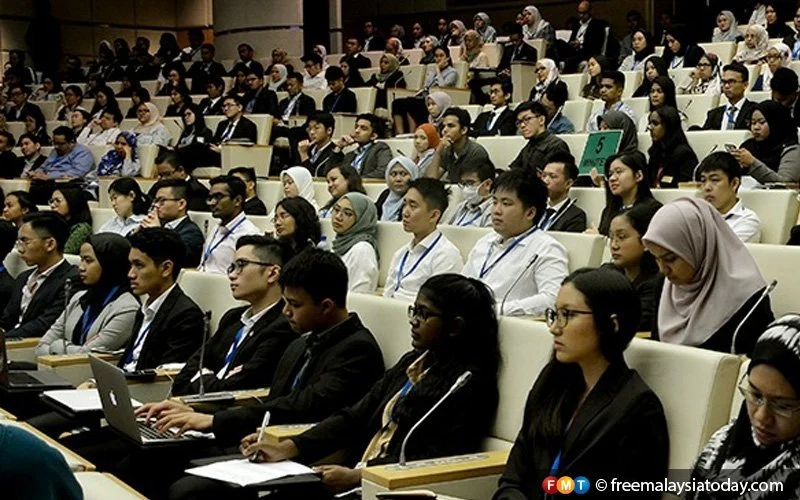 From Muzaffar Syah Mallow
From Muzaffar Syah Mallow
During a recent dialogue session with students at Universiti Utara Malaysia (UUM), Prime Minister Anwar Ibrahim stated that the quota system for Bumiputera students should be retained to maintain racial balance in local public institutions of higher learning.
He further added that any effort to do away with the system would lead to an imbalance in Malay student enrolment into certain programmes in universities.
Does this mean that the quota system will be maintained within our education system forever?
Why is it so difficult for us to have healthy and fair competition within the education system without the need for quotas?
What is a quota system?
A quota system involves policies or practices that reserve a certain number or percentage of seats or slots for a specific group of applicants based on their identity, background, or affiliation.
Quota systems are often used as a form of affirmative action to increase the representation and participation of historically marginalised or under-represented groups in education.
Quota systems can also be used to balance or diversify the composition of a student body, faculty, or research team.
However, it is important to highlight that there are advantages and disadvantages to the quota system.
The pros and cons vary depending on the context, purpose, design, implementation, and evaluation of the quota system itself.
Instead of relying on a quota system, it would be much better if we could implement merit-based admission criteria in education.
Merit-based admission criteria are seen as a way to ensure fairness, quality, and diversity in academic institutions.
They include standards and requirements that applicants have to meet or exceed in order to be accepted into an educational programme or institution.
Merit-based admission criteria can include academic performance, test scores, extracurricular activities, personal statements, interviews, and other indicators of aptitude, achievement, and potential.
The aim is to select the best and most suitable candidates for a given field of study or level of education.
However, like the quota system, merit-based admission criteria also have their pros and cons.
Nevertheless, if we compare the quota system and merit-based admission criteria, the latter is a better approach to ensure the quality of graduates we produce and that our educational system improves.
Times have changed and our educational system needs to change as well.
We need to ensure that the graduates we produce have the qualities, abilities, and capabilities to compete within the multiracial Malaysian society and at the global level.
There is concern that if Malaysia continues to maintain the quota system in education, the country will be unable to select students based on their actual qualities and capabilities.
Producing graduates full of potential is crucial for our society and nation-building.
It is perplexing to still rely on the quota system after 65 years of independence for a multiracial country like Malaysia.
Healthy and fair competition should be allowed to thrive within the education system.
The government should establish a special committee comprising experts in the relevant field to analyse this matter further.
Whatever the case may be, we cannot maintain and rely on an old system if we want to bring the country forward and become a major player on the international stage. - FMT
Muzaffar Syah Mallow is an associate professor at the Faculty of Shariah & Law at the Islamic Science University of Malaysia.
The views expressed are those of the writer and do not necessarily reflect those of MMKtT.



No comments:
Post a Comment
Note: Only a member of this blog may post a comment.